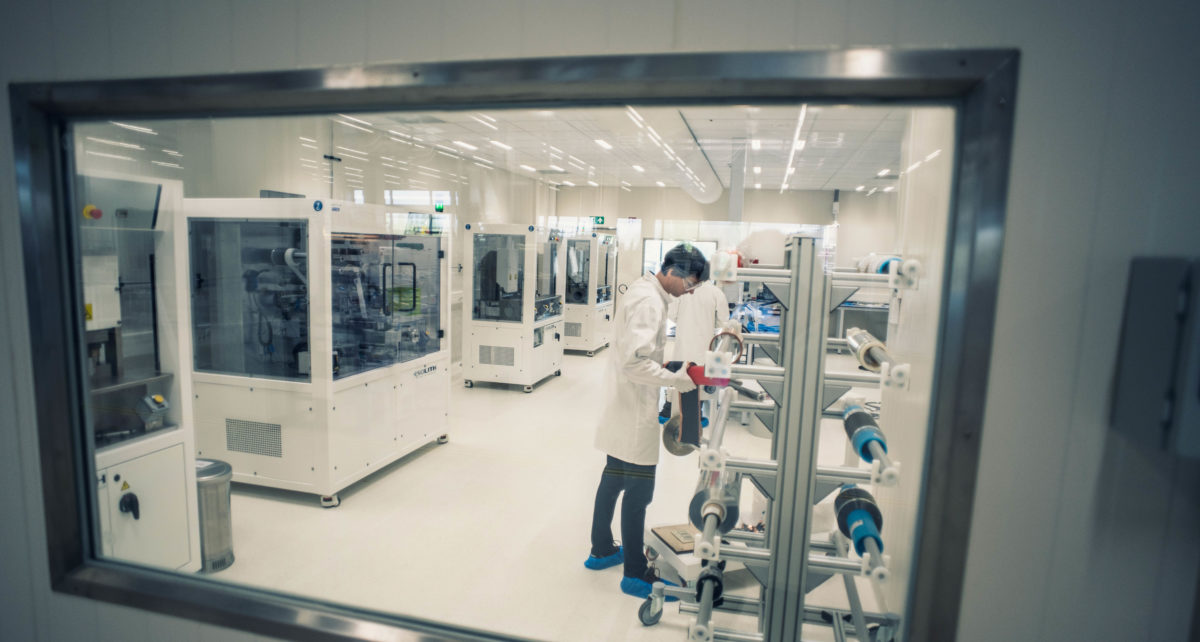Solid-state batteries have the potential to provide a solution to many of the size, energy density, recycling, degradation and fire risk issues associated with lithium-ion technology, not to mention the need for far-from-sustainable materials in lithium products.
As a result, research institutes and battery suppliers including Samsung SDI and CATL are hard at work on commercial solutions based on solid-state technology, which replaces liquid electrolyte with a solid material.
Belgian research institute imec has claimed a breakthrough with the technology, producing a solid-state battery with record setting performance of 400 watt-hours per liter (Wh/l) and a charge rate of 0.5, meaning it could be fully charged from empty in two hours. That doubles the rate achieved by imec last year and keeps it on track with a technology roadmap to achieve energy densities of more than 1,000 Wh/l at charge rates of 2-3.
New electrolyte
The key innovation by imec is the solid nanocomposite electrolyte it has developed, which the institute says has exceptionally high conductivity. The electrolyte was combined with a standard lithium iron phosphate cathode and lithium metal anode to create the record setting battery.
The institute is also scaling up the cells and developing “industrially relevant processes and formats, using manufacturing processes similar to those for wet batteries,” according to Philippe Vereecken, imec’s scientific director.
The researchers say battery cells featuring the solid electrolyte could be produced on existing production lines for ‘wet’ battery cells with just a slight modification, avoiding the need for manufacturers to invest in new manufacturing equipment. That is possible because the electrolyte is applied in production as a liquid and solidified once in place in the electrodes, allowing for better energy density as the liquid fills all available space and makes maximum contact.
This content is protected by copyright and may not be reused. If you want to cooperate with us and would like to reuse some of our content, please contact: editors@pv-magazine.com.




“”Belgian research institute imec has claimed a breakthrough with the technology, producing a solid-state battery with record setting performance of 400 watt-hours per liter (Wh/l)””
What? What I see here? Older Li-ion batteries have an energy density about 800 watt-hours per liter!